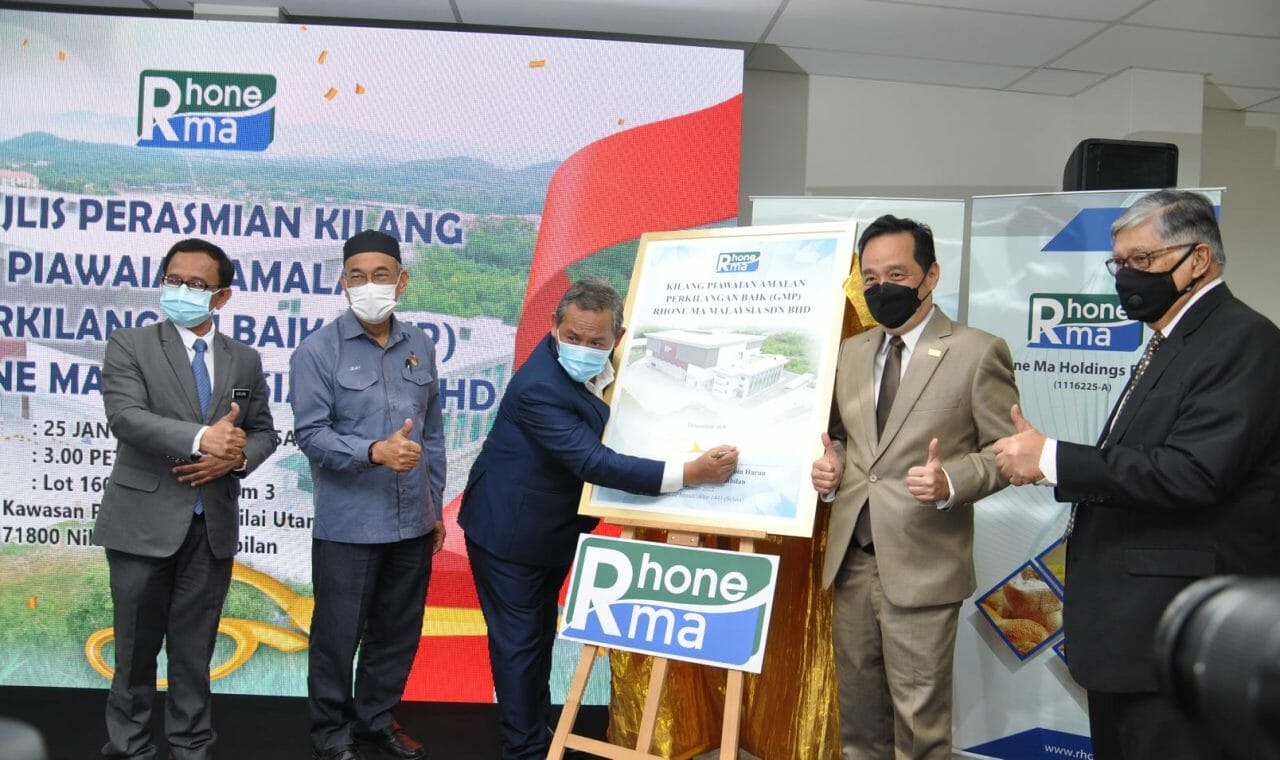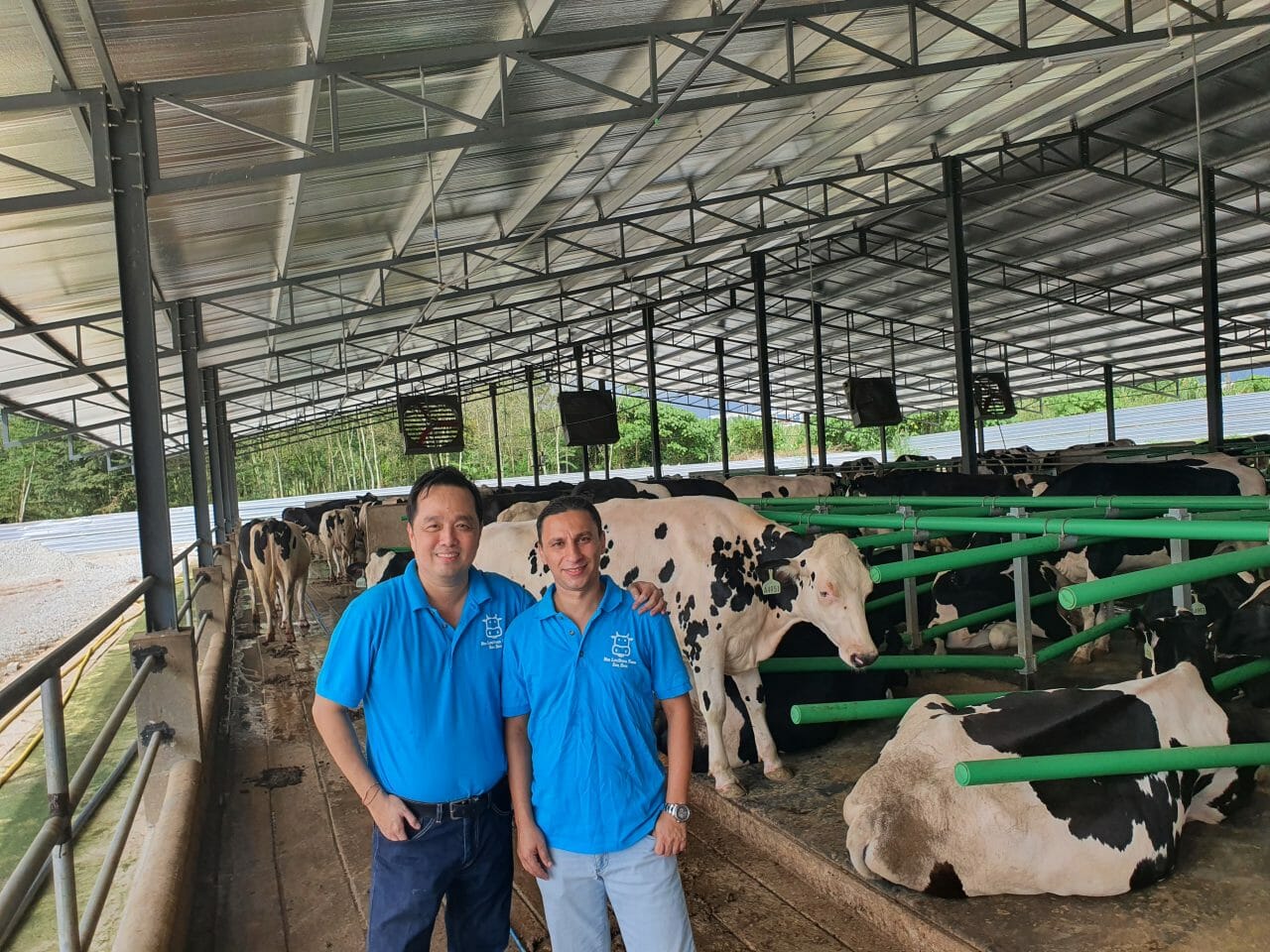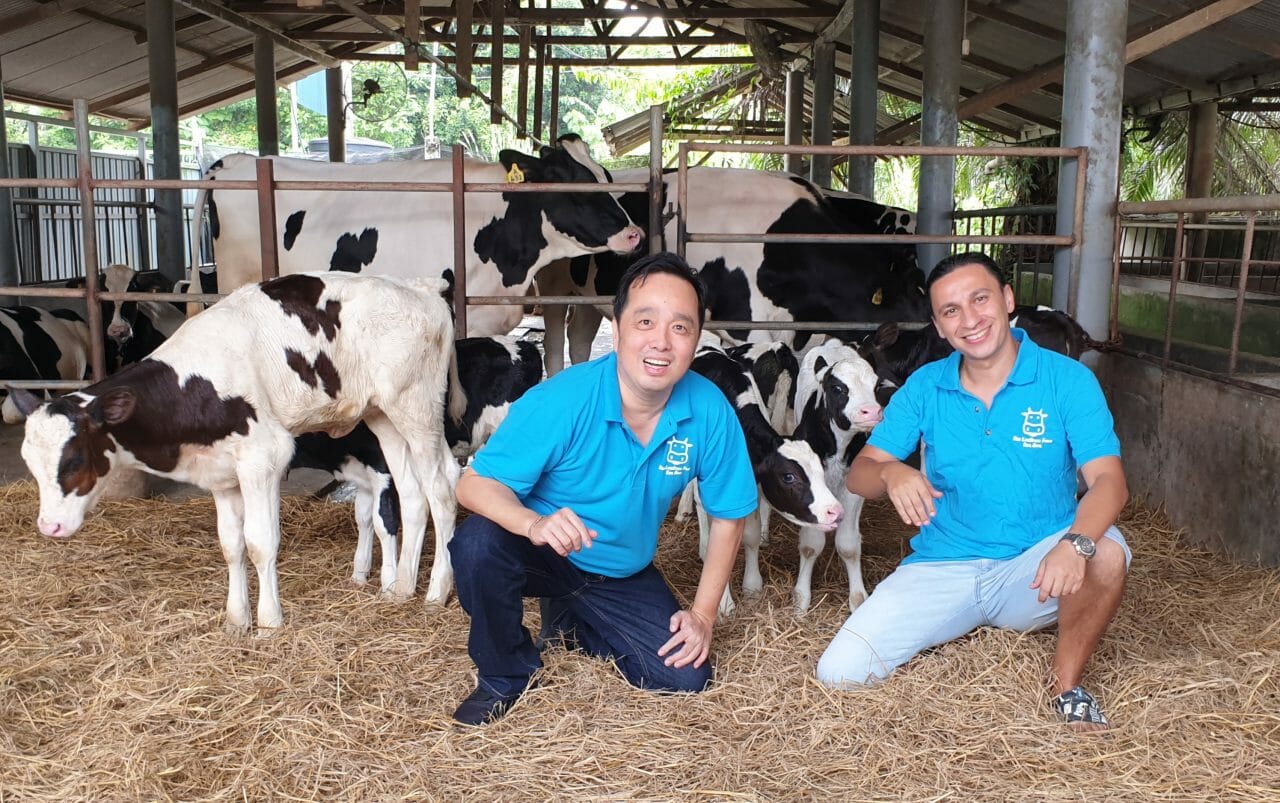One of the topics that was popularly trended on the internet was the ban of poultry export to the City-State of Singapore as well as the hiked-up poultry prices in the nation.
Rhone Ma Holdings Berhad is principally involved in the business of animal health services, animal health products and equipment, food ingredients, human healthcare services and dairy business. The interview conducted by BusinessToday with the Group Managing Director of Rhone Ma Holdings Berhad, Dr Lim Ban Keong had not been timelier than this, in the midst of the poultry ban and price hike of the most popular meat consumed by Malaysians at large.
The evolution of the business over the years
“Rhone Ma started in year 2000 as a management buy-out, the business was mostly revolved in distribution of animal health products. But over the years Rhone Ma has not only evolved but has transformed from a local distribution-oriented business model to service provider model. We can confidently claim that we are one of the pioneers in animal health sector.”
“At the commencement of the business, I can vouch that 100% of our business was in the animal health sector. With the evolution of time, this sector contributes 78%-80% to our revenue. So what happened to the 20%?”
“We set up our laboratory services for all our customers. Little did we know that others (non-customers) also need this laboratory service. In short, we have transformed by injecting professional services into the business model as our team of management consists of a team of veterinary professionals. Also, we hire qualified vets to support these farm operators or
customers.”
“Then, we saw there was a need to do R&D to support or complement the laboratory service. Hence, we set up a pragmatic R&D department to serve our customers and for our own brand product development.”
“Finally, we upgrade our business model to TSP (Total Solution Provider). With this business model, we can confidently assure customers that we are not only able to support them in terms of lab services, R&D services, and also top of these, a comprehensive product range. And this is our competitive edge: comprehensive services plus product range over our competitors.”
“The next evolution was our business launched itself into food ingredient supply. The reason being, we saw the justification for diversification as this sector is related to our existing business. This sector contributes roughly 20% to our revenue and I consider it as successful.”
Under the current climate of commodity prices soaring and scarcity in attaining them, the writer asked Dr. Lim the question of how the core business is performing.
“We are still optimistic of the outlook of the animal health industry. It depends on how long the negative effects of inflationary pressure linger on. If the commodity prices drag on, no one would escape from its harsh impact. The normal or logical strategy move is to transfer the impact of price increase to customers when commodity prices hike up. However, it also much depends on other factors such as market forces, economic situation and government policies.”
“The next consideration would be the duration of this price hike. If within one year, we may be able to weather the storm. If the duration is longer than that, then it would be more challenging for the business.”
“But of all considerations, I would say market size is the crucial determinant of growth. To elaborate, the shrinkage of market will hit even more severely. For example, say our poultry broiler markets has to fulfill 700 plus million of chicken each year. If the market size drops 5%-10%, we may still be able to recover the shortfall with alternative business revenue by exploring export market or by increasing other business sector penetration. But if the market size shrinks by more than that, for instance, then it would be a drastic drop of more than 70 million chicken, all players in this chain of industry will be impacted significantly”
“Share with us about your clientele, local and international, how is the percentage mix?” BusinessToday asked.
“The international market contributed around 2.5% pre-pandemic. And it shrank to 1.6% in the past 2 years due to travel restrictions and closed borders. Our strength is on the domestic market as it contributed 98% of the revenue. We have very strong established relationships with the local farm operators!”
“For export market, the question of readiness for an international market comes into picture,” Dr. Lim elaborated, “The GMP-compliant plant located in Petaling Jaya has the capacity to produce 637 metric tonnes whereas the newly-completed Nilai GMP-compliant plant has 4 times the capacity of the Petaling Jaya’s plant. The Nilai GMP-compliant plant is still pending for certification from NPRA, hence for the moment, the Nilai GMP-compliant plant can only process non-NPRA products. In
other words, only when the certification from NPRA is obtained, could we churn out larger volumes for the export market. Tentatively, we expect to obtain the certification by the end of By then, we could look into exporting to markets such as Philippines, Taiwan, Singapore, Thailand, Indonesia, Brunei.”
The writer prompted him to give a forecast estimation of contribution coming from the export market if they are successful to penetrate those markets, “Target it probably hit 6% on prudent estimation,” came his reply.
Most businesses suffered during the COVID-19 pandemic, however, there were couples of industries that thrive during that period. “Interestingly, our pet segment did encouragingly well during the pandemic,” came the reply of Dr. Lim.
“Tell me about the percentage of increment,” the writer was curious. “Over 20%! Pet business was booming during the pandemic.”
“As a result of being cooped up at home, pet owners paid more attention to their pets. They were more emotionally-attached to their pets and bought more products for their fur-kids.”
“We have noted Rhone Ma’s move into diversification into dairy farming. Tell us why the move and what could investors expect from this venture as capital could be intensive?”
“Let me begin with how we start off with the dairy farming. Remember our business model is of TSP. Our strength was in poultry, swine and pets businesses. And obviously, the missing puzzle here is ruminant. We have product range for cattle, such as vaccines and antibiotics but the revenue contribution was not significant. The environment and weather here are not conducive for cattle farming at large, hence that in itself explains the insignificant revenue contribution.”
“Then we took notice of the growth in local dairy sector, and it caught our attention. We did our research and exploration into dairy sector and realised it complements our business development strategies.”
“We got contacts of our partners in ruminant industry, Dr. Rosli and Mr Qasem, the dairy cattle farm owner cum operator. We hit it off as we have the right frequency to work things together.”
He then went on to describe, “We know that it is a capital-intensive industry. That is why we have to start with someone who knows this business well. That was the rationale behind not acquiring 100% as we need the knowledge and expertise of our partners too and grow the business together. We acquired with MYR7.8 million.”
“From the initial 60 cattle that we had at the time of acquisition, now we have 300 cattle. We estimate that by end of this year, the total amount of cattle may reach 500.”
The IPO of Farm Fresh earlier this year has caught the excitement of men of the street as it was by far the largest IPO with blue-blooded investment banks acting as their advisors and underwriters. With Rhone Ma venturing into dairy farming, BusinessToday prompted Dr. Lim to tell us what is the specific value proposition of the group.
“What we want to achieve from this venture is to strengthen our TSP model. We offer services to people who want to start dairy farming business by offering them consultancy services, provision of products and equipment, training of staff to help your start-up business to succeed.”
While elaborating on this point, Dr Lim showed the writer the photos of the cattle barns in Batang Kali which is well-equipped to ensure the maximum comfortable level for the milk cattle. “We are a firm-believer of animal welfare and we set up barns that are very comfortable for cattle, standards that comply with ESG principles.”
“On the issue of capital-intensive? We started off progressively with the sum of MYR7.8 million, which is considered an optimum amount for us with the calculated risks. We estimate that we might need to put MYR20 million for the scale of 1,000 cattle for land, barns, feeds and equipment.”
“There is also report on Rhone Ma to build its own milk processing plant. Share with us on this development,” the writer asked.
“The milk processing plant was the missing piece of the dairy business. That was the reason why we did the placement early this year to raise MYR13.5 million for funding of the milk processing plant, working capital, and for marketing and branding endeavours.”
“Pending the local council’s approval, we cannot reveal much on the location of the plant now. We are in the process of acquiring the equipment. The installation and testing are scheduled to be completed by end of this year. We expect the milk processing plant will be ready for operation and Halal certification will be obtained by the first quarter of 2023. The production of milk will be commenced by end of the first quarter of 2023.”
“As you know, trademark registration is time-consuming” he emphasized.
“Right now we are selling the milk to local wholesalers and in turn, they sell it to households. But I must stress that our milk is fresh A2 milk, not ordinary milk. A2 Milk is digestion-friendly!” He stressed with enthusiasm and confidence.
On a lighter note, Dr Lim did joke and challenge the writer to ask him tricky question.
“Tell us, Dr Lim what is your biggest nightmare in business?”
“All businesses have its own nightmares,” he stated it in a matter-of-factly way.
“For me, the risks we face are calculated risks. For calculated risks, there would always be a contingency plan for mitigation. Example, sudden disruption of supplies, sudden departure of key management personnel, incurable animal disease. The biggest nightmare would be all these risks happening simultaneously.”
On the export ban imposed earlier on, now lifted partially. At the time of interviewing, Dr Lim did express his view based on his experience and the information gathered from the poultry farm operators.
“This export ban is not workable in the long-run.”
Expressing his concern on the export ban based on the competitive edge, he worried that Thailand and Indonesia would eventually take over the nation’s place as the main exporter of poultry to Singapore if we are not careful in executing our policy. For the record, Brazil is the main exporter of frozen or thawed chicken to Singapore after Malaysia. Malaysia has the
advantage of geographical proximity to Singapore and the nation’s fresh chicken meat is well-received in the City-State. “Thailand has the geographical advantage too as they can also fulfill an order promptly.”
“Once we lose certain customers, it might be gone forever! Hence it is very important to carefully execute certain export ban, as the implication could be permanent and severe,” he warned.
“Overall Malaysia’s broiler producers export about 5% of our chicken to the City-State and make profit from the Singaporean market. While the 95% sold in the local market couldn’t even breakeven due to price-control. Logically, the poultry producers may cover some losses made here with the profit made in Singapore just to stay afloat,” he explained.
The most important take-away from this interview was the food security and sufficiency of the nation. Big and powerful nations like United States, France and China have the food sufficiency guarded with much zeal so that the very survival of the nation should not be hinged on other nations. This, in the point of this writer, should be treated like the military security of this nation.












